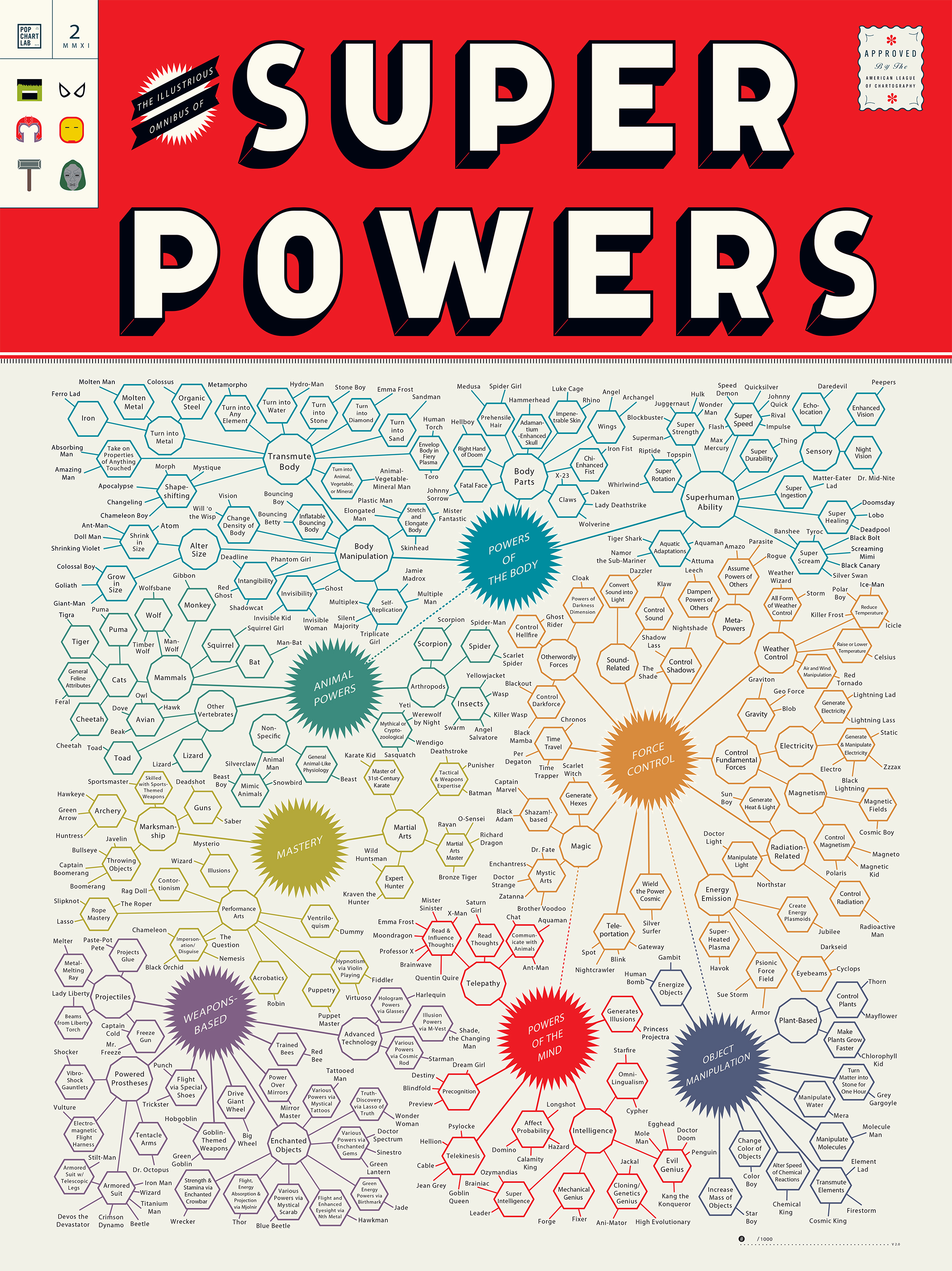 Can our school develop superpowers in kids?
Can our school develop superpowers in kids?
I once wrote an article for my college newspaper, titled “In Praise of Everyday Superpowers.” In it, I pointed out that most of the “superpowers” flaunted by the denizens of comic books would be of limited value (and maybe downright unhelpful) in the nonfiction world. The Tick can lift an I-beam, but we have machines to do that. The Flash can traverse continents in seconds, but so can Skype. And anyone who could really fly would make alluring target practice for anyone envious of their abilities.
So: comic book superpowers are silly. But real-world superpowers are most emphatically not.
The folk around us, I pointed out in the article, possess a host of “everyday superpowers”:
Muscle-bound superheroes are regularly described as possessing the strength of "100 men!," but how useful is that? I’d take organizational skills any day — the ability to accomplish three times as much as the ordinary slob, for example, before passing out in bed at nightfall.
What counts as an “everyday superpower”? Here are a few starters:
- The art of story-telling: being able to enthrall with simple narratives, and to pluck out the delicious from what seems to be mundane.
- Charisma: being compellingly attractive, whatever your physical appearance, and attracting people like a magnet.
- World-class productivity: being able to get done all the things you set yourself to, with a minimum of stress.
- The ability to negotiate shrewdly — to keep your own emotions out of the fight, and invite your opponent to a win-win compromise.
- Public speaking: enough said.
- Wry humor, and quick-wittedness — the ability to say precisely what needs to be said, in any situation.
(If you’ve got more, please suggest them in the comments section!)
But wait — aren’t these just “practical skills”?
Fundamentally yes — but crucially no. To say that (e.g.) organization is a “practical skill” is to imply that it’s useful in the “real” world. Good good. But the term “practical” also (at least for many of us) carries the note of the dull and mundane. It carries the sense of being lesser — here, beneath the implied glory of academic pursuits.
That’s a wrong connotation — damnably wrong. If anything, practical skills are more important than academic abilities, and I say that as a dyed-in-the-wool intellectual (who wants to build a school to make more intellectuals!).
To speak of these skills as “superpowers” brings out the real excitement that they possess.
Moreover, calling them “superpowers” might — I’ll venture, with no evidence whatsoever — encourage students to develop these skills to an extreme level. To talk of “superpowers” isn’t to talk about mild skills — Peter Parker doesn’t have pretty good agility; Batman doesn’t have a fairly sharp mind. As soon as the word “superpower” leaves our lips, we’re waist-deep in the world of romantic exaggeration. We’re giving kids a high ideal to aspire to.
I’ll end this question right here, and save the obvious next question — if we intend this school to develop superpowers, how can we do it?
Presumably it will involve radioactive spider bites.